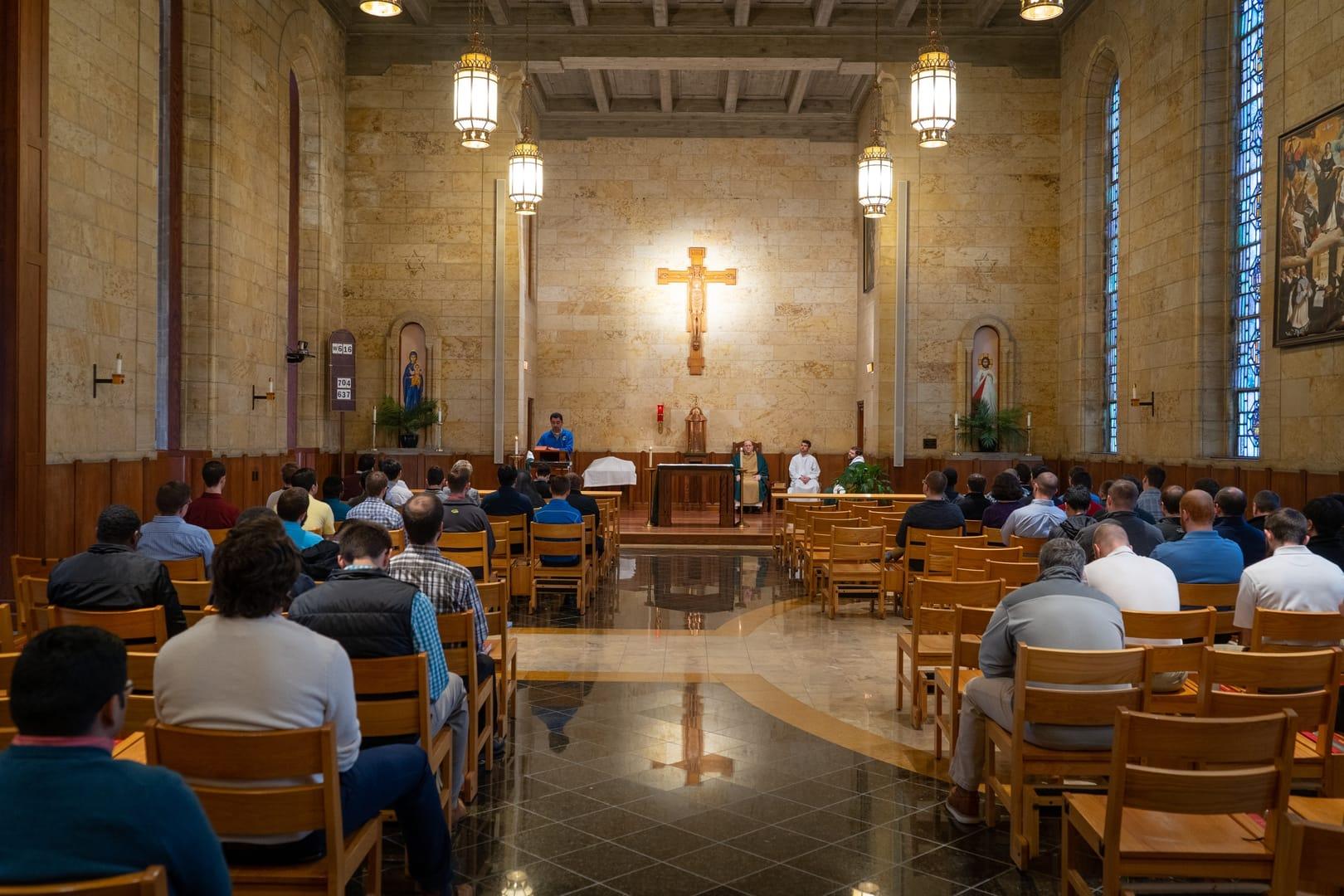NEW YORK — When reports of then-Cardinal Theodore McCarrick’s sexual misconduct surfaced in 2018, John Cavadini got to work.
The director of the Notre Dame McGrath Institute for Church Life wanted to figure out a way to help ensure those guilty of sexual abuse or misconduct were held accountable in the future.
Two years later, and the Institute has come out with five sexual misconduct policy benchmarks for seminaries.
The benchmarks were released Monday – a day before the Vatican released its long-awaited report detailing how McCarrick rose through the church ranks despite the decades-long rumors and allegations against him.
RELATED: Leading abuse expert hopes McCarrick report ‘will have consequences’
“There has to be a way to hold the authority in the church accountable without having to have a huge crisis come up again to show us that’s what we need and wait months to find out more than we already did,” Cavadini told Crux.
The five benchmarks are systematic training of seminarians, faculty and staff regarding harassment policies; internal and external reporting and investigation procedures; victim support; assessment of internal policies and consistency; and portability of standards to suit local conditions.
The benchmarks stem from a 2018 national study the McGrath Institute conducted with the Center for Applied Research in the Apostolate at Georgetown University, in which over 1,500 seminarians participated.
There were three main findings Cavadini drew from the study – a lack of knowledge around what sexual harassment was, a lack of knowledge of seminary policies, and a lack of credible reporting structures for seminarians.
Each benchmark has its own role related to the findings. For example, Cavadini said training the seminary community on harassment policies will have added benefits for the institution’s culture.
RELATED: History-making report sets a precedent the Vatican can’t walk back
“I think by training people in what harassment is and what policies are there’s also formation, it’s forming them to have the idea that their seminary culture doesn’t have this in it,” he said. “It’s helping them be aware of how to improve their own seminary culture. It’s not just that it’s educational, it’s also formational.”
The benchmark of assessing the seminary’s internal policies has a similar purpose. It’s another way for the seminarians to give input into what they see and whether or not the policies are effective, Cavadini said. It’s also a way to make sure seminarian authorities aren’t the only ones reviewing the policies, he added.
The other three benchmarks are less preventative, but more about making sure there’s an appropriate response to any incidents that occur. Cavadini said there has to be an internal process as well as an external process because “without that nobody feels like they can have any confidence that they have any kind of impunity in making (the report).”
The reporting structure also goes hand in hand with victim support.
RELATED: Victims ‘welcome’ McCarrick report, but say accountability needed
“There has to be a way of supporting somebody who has complained in this way as the process moves forward because presumably the complaint does get back to the seminary,” he told Crux. “A process that still doesn’t compromise the victim, the person alleging abuse, or the person reporting the abuse even if it’s not the victim.”
The last benchmark is an effort to make sure seminarians have a place to report when they’re away from seminary if something were to happen. Cavadini said one way abuse goes unchecked is when it occurs in the diocese, but there’s no process at a seminary to hear the complaint.
Now that the McGrath Institute has issued its five benchmarks, Cavadini says the job now is to reach out to different seminaries and get them to buy into the proposal.
“The worst result of something like this is you feel stuck,” he said. “You feel like you can’t do anything effective. You can’t take a huge step, so you don’t take a step. This is an attempt to offer a step forward so that we can remind ourselves we can take it. The more buy in from seminaries the more likely this turns into something bigger.”
Follow John Lavenburg on Twitter: @johnlavenburg
















